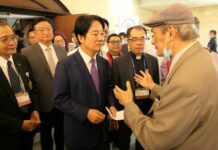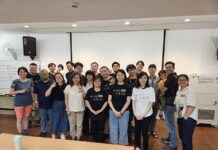February 27-March 4, 2012
Headline News
Heated controversy surrounding US beef delays imports – for now
Reported by Lin Yi-ying, Sam Lee
Written by Lydia Ma
Faced with the Ma administration’s insistence on lifting the ban on US beef imports despite health and food safety concerns, opposition parties such as the TSU and the DPP recently protested and boycotted legislative assemblies to prevent newly appointed Premier Sean Chen from presenting his report.
In light of this impasse, the Legislative Yuan passed a vote temporarily banning the Executive Yuan from allowing imports of US beef containing Ractopamine to enter Taiwan. This ban will be effective until May 31st, 2012 and it was passed to quell controversy as well as to buy time for government officials to further discuss this issue.
However, Taiwanese should not let down their guard for a third round of inter-departmental consultation on US beef has been slated to begin on March 3, a clear indication that the Ma administration is keen on allowing US beef containing Ractopamine to enter the country. It is likely that this latest round of negotiation between scholars will focus on whether consuming beef with this feed additive will be harmful to people suffering from cardiovascular diseases or pregnant women and children.
The Council of Agriculture conducted the second inter-departmental consultation on US beef on February 21, 2012. Although many veterinary academics and food processing experts were invited, the consultation was a closed meeting. The secret manner in which it was carried out drew protests from various organizations in Taiwan, including Homemakers’ Union and Foundation, Life Conservationist Association, and Environment and Animal Society of Taiwan, which criticized the Ma administration of using under-table tactics to allow imports of US beef. They protested with placards and slogans outside of the Council of Agriculture (COA) on that day.
COA deputy Deputy Minister Huang Yu-tsai met with protesters then and announced that details of the consultation meeting would be publicized only if those invited to the meeting agreed, but a word-for-word summary would not be provided due to coarse language. However, it has been reported that National Taiwan University School of Veterinary Medicine Dean Chou Chin-cheng left the discussion table in anger during the consultation meeting when his request to make public the details of the discussion was denied. Chou pointed out that this matter would affect the health and food safety of the entire nation and the Ma administration was divorcing itself from reality by claiming prematurely that Ractopamine poses absolutely no risk to human health.
Commenting on the lifting of the ban on US beef imports and Taiwanese consumers’ fear that they may be exposed to Mad Cow Disease, Chang-Jung Christian University Conflict Study and Research Center Director Steve Chen said that though Mad Cow Disease and Ractopamine are completely different issues, both involve a lot of behind-the-scenes politicking. Chen has a Ph.D. in Veterinary Medicine from Saskatchewan University and previously worked for the Canadian federal government as a researcher of animal diseases. He was among the team of experts who discovered the first case of Mad Cow Disease in North America.
Taiwan Justice Action Church invited Chen to offer a general guideline on Ractopamine and Mad Cow Disease on February 19, 2012. He said that the first human casualty of Creutzfeldt-Jakob (Mad Cow) disease was diagnosed in 1995 and this disease has only afflicted the northern hemisphere (which includes Taiwan) up to this point. He added that countries such as Australia and New Zealand have yet to report cases of Mad Cow Disease because those countries’ cattle feed on grass rather than commercial feed that may contain contaminated meat and bone meals.
According to Chen, the Ma administration’s handling of imported US beef is similar to the British government’s response in the past – both resorted to covering up information and politicking. However, the Ma administration fares worse in that it has been unwilling to act a gatekeeper. Wrose, it has asked experts to endorse US beef imports with comments such as, “Jeremy Lin ate US beef and is now in the NBA.”
Chen underscored that Mad Cow Disease and Ractopamine are issues that should be considered separately. More importantly, the real issue at hand is not whether US beef is edible, but rather, whether Taiwanese can be critical thinkers who are able to understand national issues and discern politicking when they see it.






